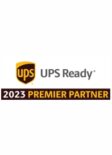Host: Hello everyone, welcome back to another episode of ExtraMile by KnowledgeNile, an interview series that bridges the gap between the industry leaders and enthusiasts. I am your host Sudakshina, and we are here to discuss the latest innovations, tech trends, marketing practices, expert insights, and a lot more.
In today's conversation, we are delighted to host Ching Pei, Vice President of Product at EasyPost, a company revolutionizing shipping solutions for businesses of all sizes.
With a unique journey from sales to product leadership, Ching brings a customer-first approach to building tools that simplify complex logistics.
Hello Ching, thanks for being here, hope you're doing good today.
Ching: Hi, thank you so much, I am, appreciate it.
Host: Great, so you have an evident shift from sales to product management roles in your career. What led you to embrace this change?
Ching: Well, it was always about the customer for me and the change was really about how I scaled my own ability to help the customer. So, in sales, I could help one customer at a time with one problem or multiple problems that they brought but in product, I can help multiple customers that may be facing the same problems. So, it was this want to continue to embrace our customers and to continue to keep our focus on them.
Host: That's a great shift. So, tell us about your experience so far at EasyPost and how do you intend to contribute to the company's growth?
Ching: I'm loving it so far, I get to wake up every day and help drive innovation forward here and to really modernize what I would say is one of the backbones of US logistics, right? Shipping is such a big part of our worldwide network as well as our domestic network that it is very, very cool to come to work every day and be able to bring my understanding of software and merge that with my new understanding of logistics and really start to focus on performance and the customer asks in the market.
Host: That was amazing to hear. So, what is your take on AI-powered solutions? Do you think such products bring more efficiency in handling challenging tasks?
Ching: Yes and no. So, I think we are at the beginning of an AI renaissance, right? We've really started to look at how it can help us in our day-to-day a lot with our language but because that's the way we communicate with each other and with our tools, it becomes the backbone or the cornerstone to really driving efficiency and operational savings for the shipping space.
So, when you think about it, we already see global retailers that have embraced AI with us, saving 400 million plus dollars just by embedding it in simple ways within their logistics. And so, as we continue to grow and to continue to see AI become more and more mature, that's just going to go up, right? As I mentioned, logistics is at the backbone of one of the major backbones I think of worldwide industries but of course here in the United States but that also comes with, hey, it is still a little behind in terms of the technology revolution.
And so, as we look at AI, there is this chance to kind of leapfrog, you know, the steps that everyone else took to get to modernization and start to embrace what's new and what can simplify and what can make it easy. So, I think AI can do a lot of things that people can't do fast enough, like figuring out how to pack a container ship, right? That used to be a skill set of somebody doing a lot of math, but AI can do that very quickly in minutes and give you a plan on how to pack that well, right?
We see AI being the backbone to understanding, hey, how are we going to pick the most effective way to ship to satisfy customer demand and quality of service but also to make sure we're efficient and cost savings are a huge part of that. So, I think it's going to change the face of how we transact in shipping and really change the way that software for shipping is going to handle all the complexities. In many ways, I think it'll simplify a lot of the logistics.
Host: I totally agree. AI is such a game changer for handling tedious tasks. It is. Product design requires a strategic approach. What challenges does the process include?
Ching: Yeah, so it's hard when you have a vision and you have somewhere that you know you want to get to. As I talk a lot about modernization and kind of pushing the boundaries of where shipping has been today, you still need to bring the customer along, right? And the industry along to understand, hey, if we can get from point A to point C, we're going to be better off.
But when everyone is still looking at point B, there is a mindset shift that you're really working towards. So, I think that's the major challenge is trying to help everybody kind of get on board and move in the same direction. Otherwise, it'd be pretty simple to build out a strategy, right? And execute it.
Host: Balancing user needs with what's technically possible is definitely an art. Say EasyPost has recently launched the B2B Shipping Solution, Forge. What are the main features of this product?
Ching: Yeah, Forge is really exciting. We had a lot of customers using our API. We're using it in these use cases anyways.
And we said, hey, probably a good idea for us to really look at how we productize and get it to market. And so, Forge really gives companies instant access to best-in-class shipping software. They don't need to build anything.
Instead of six months in an engineering or development, this is something they can turn on in days without writing code. And so, if you look at large platforms that provide their sellers, right, so marketplaces especially, a way to transact on their platform and then allowing those consumers of those customers to purchase shipping, you don't need to understand anything about the shipping industry. You can just plug in Forge, and we'll do the complicated, difficult part of connecting to carriers for you.
Host: Forge will surely bring some major changes in how companies handle shipping. Absolutely. What is the significance of effective marketing in product success?
Ching: I have often believed that marketing gives a product a voice or character. It really gives something to the market to resonate with and to connect with. And so, if you do it right, you really allow just a simple piece of software to become a household name.
And the power of connecting your audience with your product, that's what marketing brings to the table.
Host: Definitely. So, do you think it has become important to design and distribute user-focused solutions at the present time? If yes, then why?
Ching: Yes. So, this kind of connects back to the marketing side. You can't connect with your customer on what your product does if it's not built for them, right?
I've always believed that listening to your users and your customers is one of the most important parts of software development. The nuance and the trick is how you listen, how you interpret, and how you execute against what has been provided to you. And so, product has always been about what's the bigger problem?
What are we trying to solve for the customer? And so that can be left to a lot of different interpretations. But the best companies can do that really well and really quickly.
Host: That's a really powerful takeaway. Thank you so much, Ching, for sharing your journey and insights today. EasyPost's work in democratizing shipping is truly inspiring to me.
Ching: Absolutely. Very nice to meet you.
Host: Same here. Thank you everyone for joining us today. I'm your host, Sudakshina signing off. See you in the next episode of ExtraMile by KnowledgeNile with the next extraordinary leader on board sharing their thoughts and knowledge. Till then, stay tuned.
Tune Into Our Other Informative Interviews:







